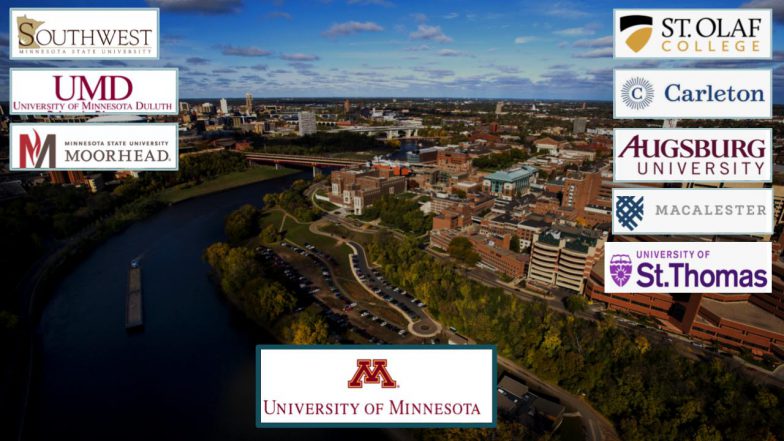Summary
The US onAir Network will be working with volunteers from Minnesota universities, colleges, and nonprofit organizations to oversee the curation and moderation of posts, aircasts (online discussions), and in person events for the Minnesota onAir Hub … related to federal, state, and local elections and government.
Our first outreach will be to University of Minnesota partly because of its proximity to the state capital. We have identified many of University of Minnesota’s civic engagement, academic, internship and research programs related to making democracy and civic responsibility a focus of higher learning on their campus … for students, faculty, staff, and local community. This post, over time, will have similar information on other collaborating organizations in the state.
Contact ben.murphy@onair.cc for more information on how to involve your organization.
About
The University of Minnesota’s onAir chapter will initially focus on training interested undergrad and graduate students on how to curate Minnesota onAir content especially submitting Top News articles, events, videos, and information and moderating forums in each post they curate.
Student curators will also work with state senate and house committee chairs to produce aircasts on issues being discussed and bills being proposed in their committees.
During election season, students with other other organizations like the League of Women Voters, will coordinate and produce aircasted debates with candidates.
University of Minnesota
Source: About Us
At the University of Minnesota Twin Cities, we seek new knowledge that can change how we all work and live. We prepare students to meet the great challenges facing our state, our nation, and our world. And we apply our expertise as students, faculty, and staff to engage with communities across Minnesota.
- Location
- Our Mission
- Who We Are
- A History of Education and Discovery
- An Indispensable Engine for Minnesota
- Leadership
- Accreditation
Civic Engagement Programs
Source: Center for Community-Engaged Learning (CCEL)
The Center for Community-Engaged Learning (CCEL) is open to all students, faculty, staff, and community members at the University of Minnesota, Twin Cities. We focus on immersing students in the local community through volunteering, service-learning classes, and other unique experiential opportunities. CCEL works with partners to provide opportunities for students to engage in off-campus experiential learning through community work and place-based educational programs. Whether academically-based or co-curricular, these experiences complement classroom learning, foster personal, professional and civic development, and allow students to work with others to enhance the well-being of our communities.
Student Government
Source: Minnesota Student Association
On the federal level, we work as part of the Association of Big Ten Students. Representing over half a million students, we have a big voice when we meet with administration and lawmakers. ABTS has conferences twice a year with a yearly lobbying trip to Washington, D.C. in April. Our federal efforts don’t end there, however, as we work to create relationships with our Minnesota representatives and voice our concerns on other federal issues, such as sexual assault policies in the Department of Education and Pell Grants.
Because we are a public institution, a large portion of funding for University operations and buildings comes from the state of Minnesota. The last two years have been filled with hundreds of meetings to showcase why it’s important that the state continue to support the University and its students. These efforts have helped result in a tuition freeze for undergraduate residents and a bonding bill, which included the renovation of Tate Laboratory to be more student focused.
Our biggest state event each year is Support the U Day, when we bring hundreds of students to St. Paul for a huge day of advocacy. If you’re looking to just do a little, this is the best and easiest way to make a difference.
On the local level, we work with community and city leaders to make sure policies and initiatives work for students. This includes working with leaders like former City Councilman Jacob Frey on getting a grocery store close to campus.
If you’re interested in getting involved or learning more, contact Bri Sislo-Schutta, our Director of Government & Legislative Affairs, at msagla@umn.edu
Internships
Source: Political Science Department
The Department of Political Science’s Internship Program is the largest in the College of Liberal Arts. Students who participate in a political internship may earn political science credits toward their major. Although credit is not given for the internship itself, students receive credit for their internships by taking POL 3080 Internship in Politcs or Government. For this course, students complete weekly reading assignments, journal entries, and conduct informational interviews. Essays and research papers may also be required. For further information, contact Internship Director Paul Soper.
Political Science Programs
Source: Department website
Undergraduate Programs
The Department of Political Science offers two program options:
Graduate Programs
Research Initiatives
Source: Political Science Department
Dedicated to the establishment of a strong research community for social scientists focused on the theoretical and practical advancement of political psychology.


